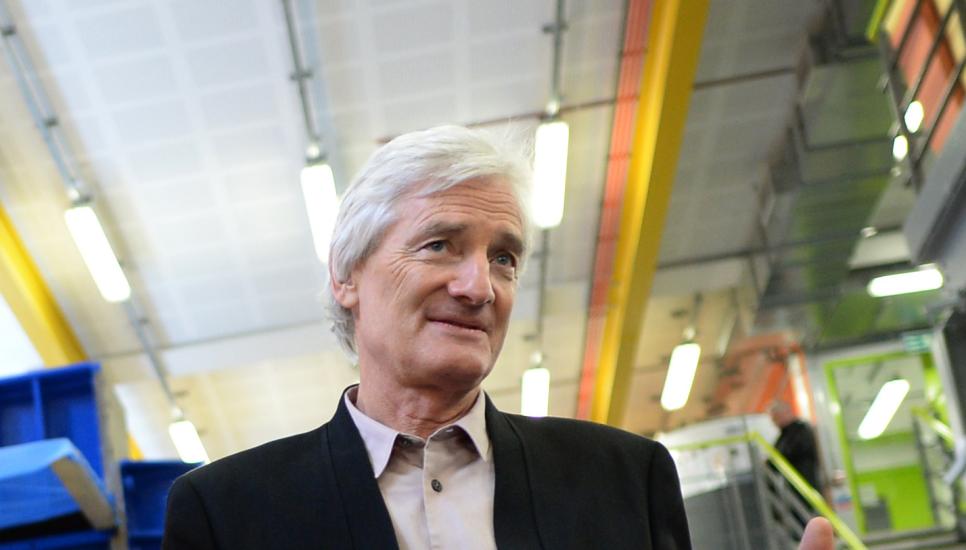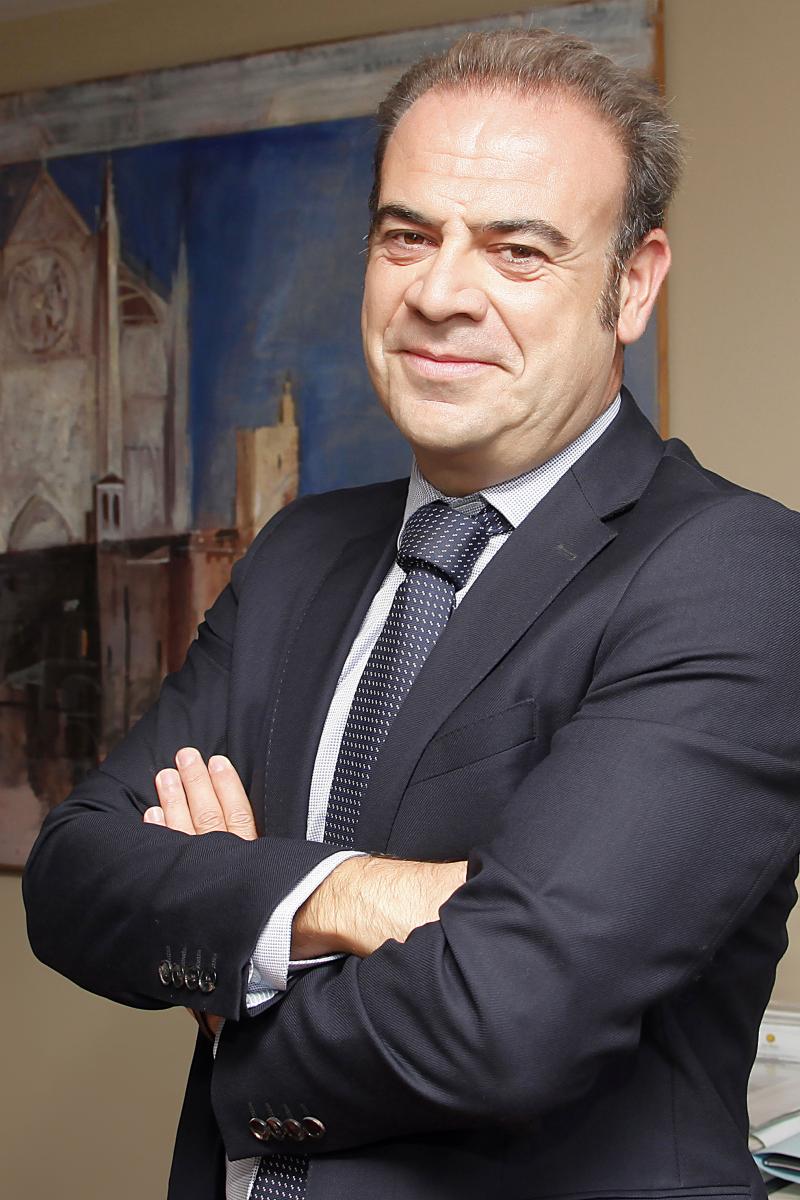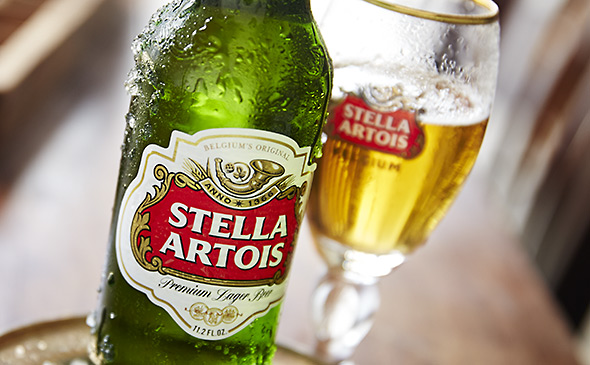FB Roundup: Dyson, Melia Hotels, AB InBev

James Dyson says “race is on” to make 10,000 coronavirus ventilators
Sir James Dyson, the UK billionaire entrepreneur who made his fortune by inventing a cyclonic vacuum cleaner, has been commissioned by the UK government to make 10,000 critical ventilating machines for the country’s health service in the fight against the coronavirus pandemic.
In an example of a family businesses changing production lines and business models to meet urgent healthcare needs, Sir James (pictured) told employees this week his company had designed a new ventilator, called the CoVent, to answer the call from Boris Johnson, the UK’s prime minister, 10 days earlier. An initial 10,000 machines were to be produced in Dyson’s hangar-sized UK base in Wiltshire for the health service and a further 5,000 units donated to the global effort by early April.
“A ventilator supports a patient who is no longer able to maintain their own airways, but sadly there is currently a significant shortage, both in the UK and other countries around the world,” Sir James said in the letter.
“This new device can be manufactured quickly, efficiently and at volume… The race is now on to get it into production.”
The UK’s health service has 8,000 ventilators and a further 8,000 were on order from manufacturers. However, it was estimated at least 30,000 machines were needed to deal with the possible influx of virus patients. As of 27 March, 14,543 Britons were confirmed positive for coronavirus (Covid-19), including Johnson and the UK’s health secretary, and 759 patients have died.
Sir James, 72, founded his own firm in 1974 and it is thought he still owns close to 100% of the company. In 2019, air purifiers and robot vacuum cleaners helped boost profits by £51 million ($62.3 million) to £750 million ($917 million) with a 26% increase in sales to £4.4 billion ($5.3 billion).
Jake, 47, Dyson’s elder son and heir apparent, brought his lighting firm into the family business after 10 years in 2013. Jake was listed at the UK’s Companies House as a Dyson director, along with Sir James and his younger son Sam, 42, until Dyson moved its headquarters to Singapore in 2019. The company planned to build electric cars on the island state, but scrapped the project later that year because it was not “commercially viable”.
The charitable James Dyson Foundation has donated millions towards the introduction of young people to engineering since 2002.
 Escarrer family braces Melia Hotels for coronavirus and world recovery
Escarrer family braces Melia Hotels for coronavirus and world recovery
The Escarrer family-owned group Melia Hotels International says it has prepared a global contingency plan to ensure its continued operations, with all legal, financial health and safety coverage, as it confronts the impacts of the coronavirus.
The family business announced it has also prepared a sales and marketing action plan “post-Covid-19” to boost the recovery of hotels affected in China and elsewhere. The Spanish market-leading hotelier is one of the largest hotel companies worldwide, with more than 380 hotels in 40 countries.
The pandemic in China had only a moderate impact on company results because all five of its hotels in the country operated under management agreements, Melia said. However, the coronavirus outbreak in Barcelona and Milan prompted the cancellations of meetings, incentives, conferencing and exhibitions at Melia properties.
Founded in 1956 in Palma de Mallorca, Melia Hotels is led by Gabriel Escarrer Julia, 85, founder and non-executive chairman, and son Gabriel Escarrer, 49, executive vice chairman and chief executive.
Melia achieved €470.9 million ($520 million) in revenue in 2019, similar to 2018. Consolidated net profit at €121.7 million ($134 million) was 19.8% below 2018 figures, influenced by less capital gains. The group said disruption to its business in 2019 was down to a “smear campaign” in some media over the deaths of mainly US tourists, affecting the reputation of the Dominican Republic as a tourism destination, in addition to unsightly sargassum seaweed washing up on Mexican beaches and a slowdown in Cuba, partly as a result of the collapse of Thomas Cook, but expected a “speedy recovery” in most cases.
Gabriel Escarrer (pictured) said to consolidate the “remarkable strength and resilience” the family business had shown, “we have to reinforce our diversified business model, our talent, our digital and analytical capacity, our advantages over alternative accommodation models through authentic brand experiences, and of course, the reputation and confidence we generate in our stakeholders. If we do that, we will be in the best possible conditions to create value and enjoy the consistent growth we anticipate for the coming years.”
 AB InBev adapts to changing consumer tastes with premiumisation strategy
AB InBev adapts to changing consumer tastes with premiumisation strategy
Family-controlled AB InBev, the world’s largest brewer with more than 500 brands including Budweiser, Stella Artois and Corona, is pinning its hopes on premiumisation after its performance in 2019 was “below our expectations” as consumer habits change.
The Belgium-based brewing giant also withdrew its outlook for 2020 less than a month after release because of the “uncertainty, volatility and fast-moving developments” of the coronavirus pandemic in the markets it operated. The company estimated it lost $285 million in revenue in China in the first two months of 2020 alone.
Anheuser-Busch InBev announced its revenue grew an “unsatisfactory” 4.3% to $52.3 billion, despite growing volumes by 1.1% in 2019, its third consecutive year of volume growth with the rate of growth accelerating each year. The company missed sales and earnings estimates in both the third and fourth quarters of last year.
AB InBev recognised an ageing population, social isolation, a movement towards gender equality, health and wellness, and a greater need for digitisation and connection as factors affecting its consumers and their behaviour. After premiumisation generated double-digit growth on applied brands, AB InBev said it would accelerate the strategy.
“Across the world and especially in mature markets, consumers are looking for affordable luxuries in all consumer goods categories, including beer,” the report said.
AB InBev is publically listed, but controlled by three Belgium brewing dynasties. The Mevius and Spoelberch families have been involved in the management of the Artois brewery in Leuven since the 14th century. After a merger with Piedboeuf from Liege, the Van Damme family joined the group.
The group planned to complete its sale of its Australian subsidiary Carlton & United Breweries to Japan’s Asahi Group Holdings for AUD $16 billion ($11 billion) in the second quarter of 2020.






